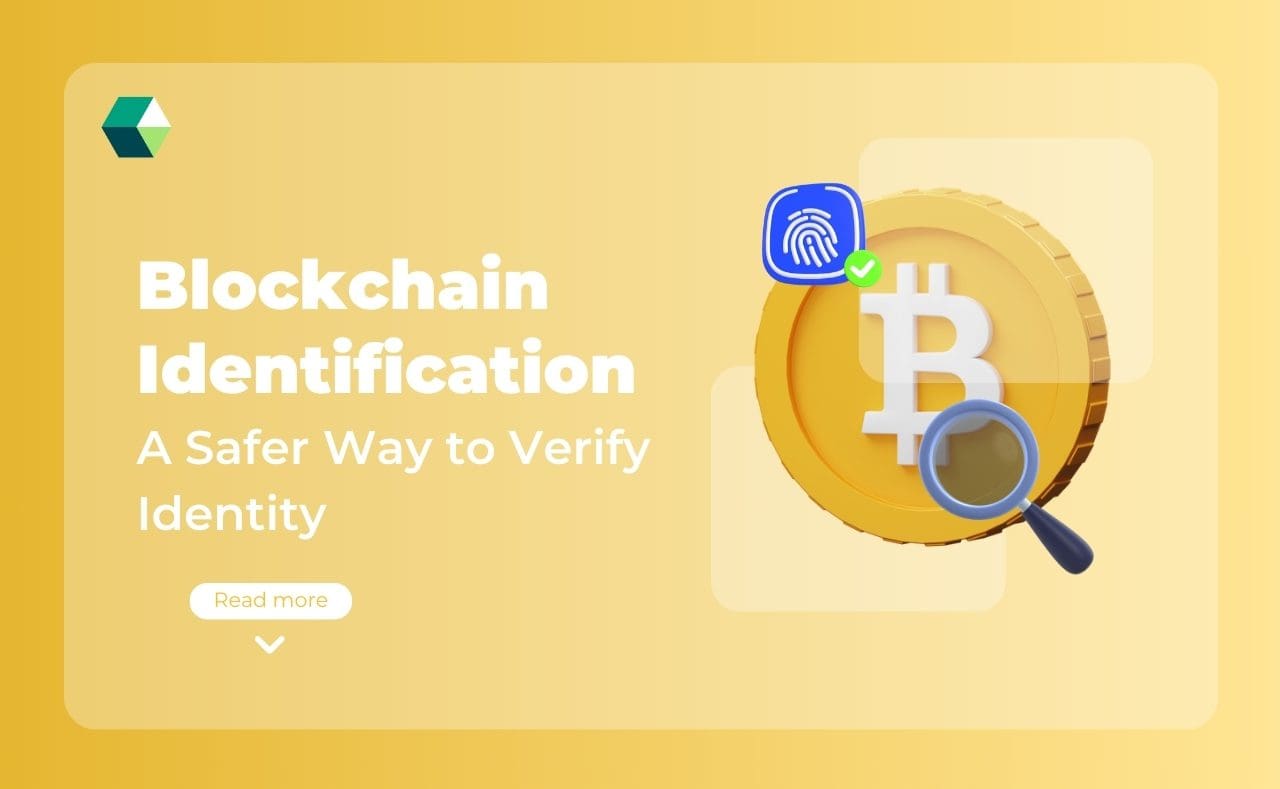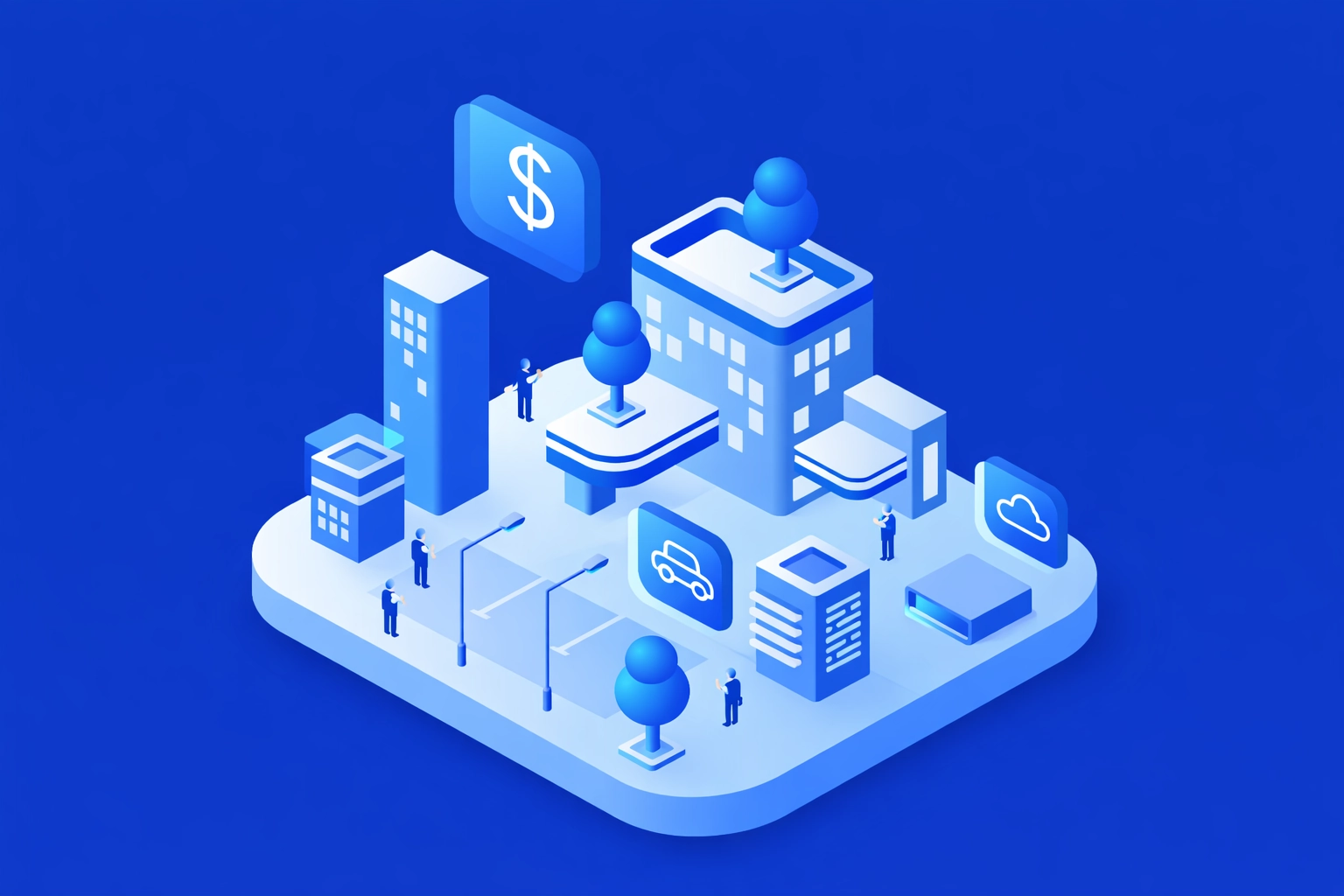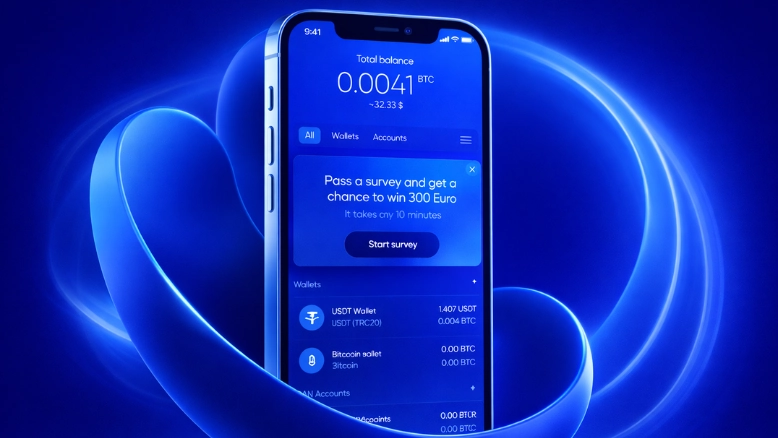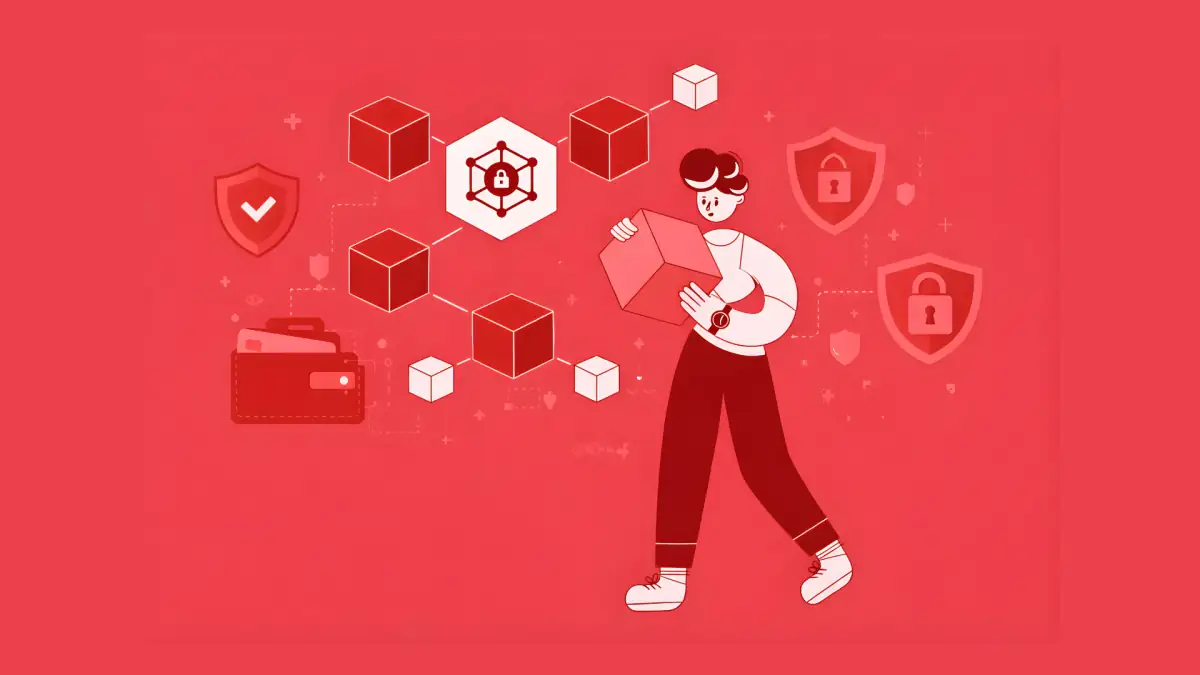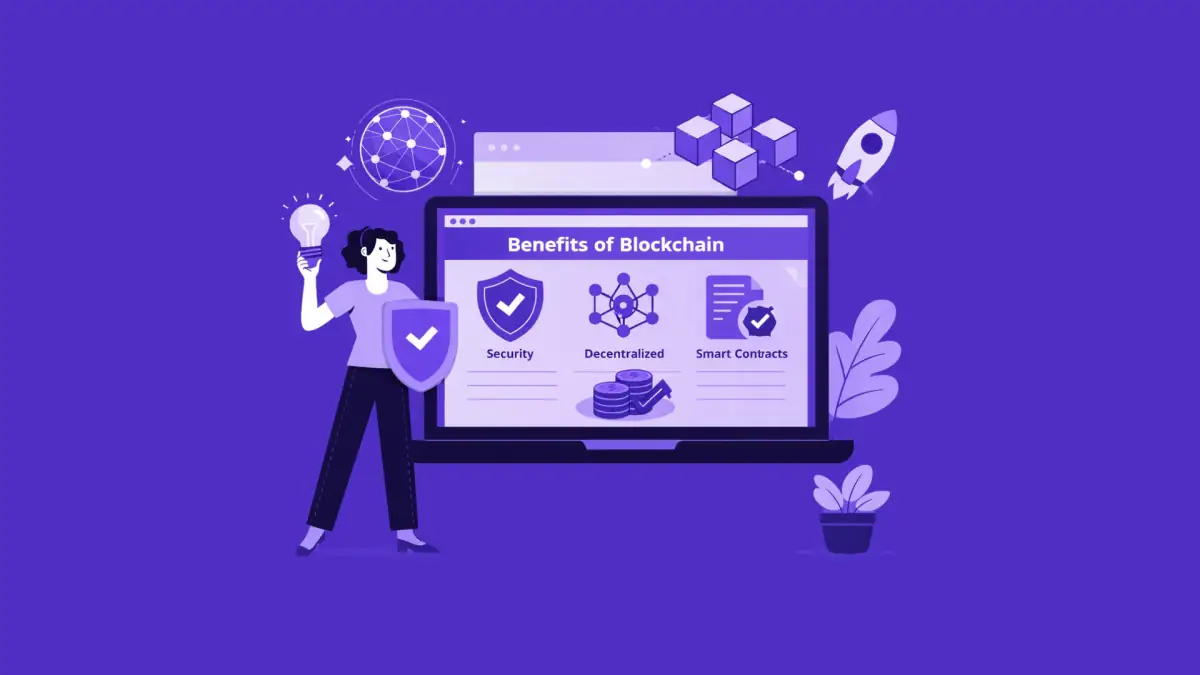In today’s digital world, verifying and protecting identities is a growing challenge. Traditional methods like passwords and IDs are vulnerable to fraud and hacking. Blockchain technology provides a safer, more efficient way to verify identities and manage personal data. This blog explores how blockchain-based KYC (Know Your Customer), KYC blockchain solutions, blockchain KYC software, and identity management solutions work together to secure personal information. It also discusses how blockchain security and crypto security services help protect identity data, giving users more control over their personal information.
Understanding Blockchain Identification
Blockchain identification refers to the use of blockchain technology to securely manage, verify, and protect an individual’s digital identity. Blockchain is a decentralized, distributed ledger technology that ensures data is secure, transparent, and immutable. When applied to identity management, blockchain allows individuals to have control over their personal information while providing a secure way to prove their identity without relying on third parties. It eliminates the need for centralized authorities like governments or banks, which traditionally store and manage identity data. With blockchain, your data is stored across a network of computers, making it nearly impossible for hackers to manipulate or steal. Each identity is linked to a unique cryptographic key that can be used to verify your identity. This offers a level of security and privacy that traditional methods can’t match.
Why is Blockchain Needed for Identity Management?
Blockchain is important for identity management because it offers a safer, more private, and trustworthy way to manage personal information. In Traditional Systems, personal data is kept in one central place, which can be hacked or accessed by the wrong people. Blockchain solves this problem by spreading the data across many computers, making it much harder for anyone to change or steal the information.
With blockchain, you also have control over your data. Instead of relying on companies or governments to protect your information, you decide who can see it and when. This reduces the risk of your details being misused. Blockchain security also uses encryption to keep your information safe. Once your details are added to the blockchain, they cannot be changed or deleted, ensuring your identity remains secure. This makes blockchain an excellent choice for managing identities because it provides better protection, more privacy, and more control for users.
Blockchain Identification: Use Cases
Blockchain identification has many useful applications that are changing the way we manage and protect personal information. These applications improve security, privacy, and efficiency, making Blockchain an Ideal Solution for Identity Management in various fields. Below are some of the key use cases of blockchain-based identification:
-
Online Authentication
Blockchain can make logging into websites and apps safer. Instead of using traditional passwords, blockchain allows users to log in securely with a digital identity. This reduces the risk of hackers accessing personal accounts because it uses secure cryptographic keys instead of passwords.
-
Government Services
Governments are increasingly using blockchain to manage the digital identities of citizens. With blockchain, people can access public services like voting, applying for benefits, or renewing documents securely without the fear of their information being stolen or misused. Blockchain offers a safe way to store and verify identities.
-
Healthcare
Blockchain can help secure medical records by storing them in a decentralized system. This means that patients can control who has access to their health information. Doctors or hospitals can securely access up-to-date medical records, reducing the risk of data breaches while ensuring that patients’ sensitive information remains private.
-
Financial Services
Blockchain is also used for identity verification in the financial sector. Banks and financial institutions can use blockchain to verify someone’s identity quickly when they open an account, apply for loans, or make transactions. This reduces the risk of fraud and makes banking services more secure.
-
Travel and Border Control
Blockchain identification can simplify the travel experience. Travelers can use their digital identity for smoother passport checks at airports and faster immigration processes. It helps speed up procedures and ensures that people’s identities are properly verified, preventing fraud or identity theft.
-
Supply Chain Management
In supply chains, blockchain helps verify the identity of suppliers, buyers, and products. This ensures that goods are coming from trusted sources. For example, companies can use blockchain to check if a product is genuine, like verifying if a diamond is ethically sourced or if medicines are safe and not counterfeit.
-
Digital Voting Systems
Blockchain can be used for online voting. Voters can use their blockchain-based identity to cast votes securely, ensuring that the election process is fair, transparent, and free from tampering. Blockchain provides a tamper-proof and transparent system for verifying votes.
-
Business Identity Verification
Blockchain can help businesses verify the identities of their partners, contractors, and customers. This reduces the risk of fraud by ensuring that only trusted individuals have access to sensitive business information or systems.
Key Features of Blockchain for Identity Protection
-
Decentralization
Traditional identity systems store data in one central place, making it easier for hackers to target. Blockchain, on the other hand, stores data across many computers, making it harder for hackers to access all of it at once. This decentralized system keeps personal information more secure.
-
Immutability
Once information is added to a blockchain, it cannot be changed or erased. This means that your data stays safe and cannot be tampered with by anyone, ensuring that your identity information is always accurate and trustworthy.
-
Encryption
Blockchain uses strong encryption to protect the data stored on it. Your personal information, like your name or address, is turned into an unreadable code, which can only be unlocked with the right key. This helps keep your identity safe from unauthorized access.
-
Transparency and Auditability
Blockchain allows for full transparency, meaning that all actions on the blockchain can be seen and traced by those with the proper permissions. This feature makes it easier to check and verify identity data, building trust in the system.
-
User Control and Consent
One of the best features of blockchain is that it gives you control over your own identity. You can decide who can see your data and when. Unlike traditional systems, where companies or governments control your information, blockchain lets you manage your personal details securely.
-
Reduced Risk of Identity Theft
With blockchain, the risk of identity theft is much lower. Since blockchain is decentralized and encrypted, even if someone tries to hack into the system, they won’t be able to change or steal your information easily. This makes it much safer than traditional identity systems.
How to Develop a Blockchain Identity Verification App?
-
Understand Blockchain and Identity Verification
Before you start developing an identity verification app, it’s important to understand blockchain technology. Blockchain is a system that keeps data secure and transparent by storing it in many different places instead of just one. This is great for identity verification because it helps prevent fraud and ensures that the data cannot be easily changed or hacked. Developing a blockchain system makes your identity data safe and lets you control who sees it.
-
Define Your App’s Purpose and Features
The next step is to decide what your app will do and what features it will have. For example, the app could help people prove their identity online without using traditional passwords. Key features might include secure logins, the ability to verify users’ identities, and giving users control over their data. Planning these features will help guide how the app will function and how it will meet users’ needs.
-
Choose the Right Blockchain Platform
Choosing the right blockchain platform is important because it affects how your app will work. Some popular blockchain platforms are Ethereum, which is good for building apps with smart contracts, and Hyperledger, which is used for business solutions. It’s important to choose a platform that fits your app’s needs and goals, whether it’s handling secure logins or managing digital identities.
-
Design a User-Friendly Interface
For your app to be successful, it needs to be easy for users to navigate. A simple and clean design makes it easier for people to manage their identity and verify it. Features like fingerprint recognition or facial recognition can make logging in quicker and more secure. Keeping the design user-friendly ensures that everyone, even people who aren’t very tech-savvy, can use the app without difficulty.
-
Develop Smart Contracts
Smart contracts are important for automating identity verification. A smart contract is like an automatic agreement that gets executed when certain conditions are met. For example, if a person’s ID matches the records, the smart contract can automatically approve their identity. Developing smart contracts ensures that the verification process is secure and quick without needing a middleman.
-
Implement Secure Data Storage
Blockchain doesn’t store large amounts of sensitive data directly on it; instead, it stores hashes (unique codes) of that data to keep it safe. Sensitive information like passwords can be stored off the blockchain in encrypted databases. Using secure technologies like the InterPlanetary File System (IPFS) allows you to store data off the blockchain but still link it to the blockchain for verification.
-
Focus on Security
Security is the most important part of an identity verification app. You’ll need to use strong encryption methods to protect users’ data. Public and private keys can help ensure that only authorized people can access the data. Adding two-factor authentication (2FA) also increases security by asking users to verify their identity through another method, like a text message or app notification. It’s important to constantly check for any security flaws to protect users’ information.
-
Test the App
Once you’ve developed the app, testing is crucial. Test each feature to make sure everything works well together. You should also check for security problems that could expose user data. Testing the app with real users can help find any issues in design or functionality, ensuring the app works smoothly and securely before it’s launched.
-
Deploy and Monitor the App
After thorough testing, you’re ready to launch your app. Deploy it on popular app stores like Google Play or the Apple App Store. It’s important to monitor the app after launch to make sure it continues to work well and stays secure. Keep an eye out for any security threats or bugs that need fixing.
Future of Blockchain Identity Verification
The Future of blockchain in identity verification is bright, especially with know your customer (KYC) blockchain solutions. Blockchain technology allows individuals to control their data, making it safer and more private than traditional methods, which are often vulnerable to hacks. KYC blockchain solutions help businesses quickly and securely verify identities, while also ensuring compliance with regulatory requirements. This process, which used to be slow and costly, can now be done much faster and with fewer errors, thanks to blockchain’s decentralized and transparent nature.
As blockchain becomes more widely used across industries such as banking, healthcare, and government, identity verification will be more efficient and secure. The use of Advanced Technologies like artificial intelligence (AI), biometrics, and machine learning will further enhance the accuracy and speed of verification. In the future, Blockchain-based KYC solutions will provide a safer, more reliable, and cost-effective way for businesses and individuals to verify identities online.
Reviewed & Edited By

Aman Vaths
Founder of Nadcab Labs
Aman Vaths is the Founder & CTO of Nadcab Labs, a global digital engineering company delivering enterprise-grade solutions across AI, Web3, Blockchain, Big Data, Cloud, Cybersecurity, and Modern Application Development. With deep technical leadership and product innovation experience, Aman has positioned Nadcab Labs as one of the most advanced engineering companies driving the next era of intelligent, secure, and scalable software systems. Under his leadership, Nadcab Labs has built 2,000+ global projects across sectors including fintech, banking, healthcare, real estate, logistics, gaming, manufacturing, and next-generation DePIN networks. Aman’s strength lies in architecting high-performance systems, end-to-end platform engineering, and designing enterprise solutions that operate at global scale.
